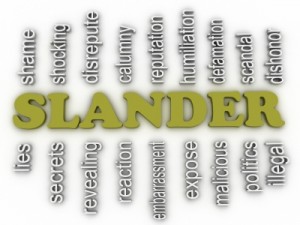Have you ever questioned whether something you were told or overheard about a business partner, employee, or competitor was actually true? Has someone ever made false statements of fact regarding you or your business?  How to proceed may be complicated because Florida defamation law currently offers more confusion than guidance in most defamation cases regarding the critical issue of who must prove the truth or falsity of an allegedly defamatory statement. Gunster attorney Roger Feicht advises business owners on a wide variety of labor law and litigation issues. His article, True and false? Florida’s confused defamation laws, published in the Daily Business Review on June 2, analyzes the Florida Supreme Court’s standard jury instructions and resulting court opinions, and concludes that the issue has yet to be definitively answered by Florida courts. Florida’s defamation law allows lawsuits to be filed when a false statement of fact is communicated, verbally or in writing, from one person to another. Defamation could take the form of a statement verbally told to a reporter and subsequently published in the media. It could even be a statement included in an email, text message, or social media post. Verbal defamation is called slander, while defamation in writing is called libel. False statements of fact (e.g., “He stole $10,000 from me”) can serve as a basis for a defamation lawsuit – not statements of pure opinion (e.g., “In my opinion, he is not to be trusted”). Importantly, businesses and other corporate entities who are defamed can file claims for commercial defamation under Florida law. That said, it’s important to note that Florida law remains unsettled regarding whether it is the plaintiff or defendant who has the burden to prove the truth or falsity of the defamatory statements. Whether such statements are true or false is the most hotly contested issue in defamation litigation cases. The lack of clarity in Florida law regarding this burden of proof has confused judges and continues to create uncertainty for those who have been defamed and seek relief through Florida’s legal system. Read Feicht’s entire article in the Daily Business Review: True and false? Florida’s confused defamation laws (6/2/15, subscription required). Image courtesy of David Castillo Dominici / FreeDigitalPhotos.net.
How to proceed may be complicated because Florida defamation law currently offers more confusion than guidance in most defamation cases regarding the critical issue of who must prove the truth or falsity of an allegedly defamatory statement. Gunster attorney Roger Feicht advises business owners on a wide variety of labor law and litigation issues. His article, True and false? Florida’s confused defamation laws, published in the Daily Business Review on June 2, analyzes the Florida Supreme Court’s standard jury instructions and resulting court opinions, and concludes that the issue has yet to be definitively answered by Florida courts. Florida’s defamation law allows lawsuits to be filed when a false statement of fact is communicated, verbally or in writing, from one person to another. Defamation could take the form of a statement verbally told to a reporter and subsequently published in the media. It could even be a statement included in an email, text message, or social media post. Verbal defamation is called slander, while defamation in writing is called libel. False statements of fact (e.g., “He stole $10,000 from me”) can serve as a basis for a defamation lawsuit – not statements of pure opinion (e.g., “In my opinion, he is not to be trusted”). Importantly, businesses and other corporate entities who are defamed can file claims for commercial defamation under Florida law. That said, it’s important to note that Florida law remains unsettled regarding whether it is the plaintiff or defendant who has the burden to prove the truth or falsity of the defamatory statements. Whether such statements are true or false is the most hotly contested issue in defamation litigation cases. The lack of clarity in Florida law regarding this burden of proof has confused judges and continues to create uncertainty for those who have been defamed and seek relief through Florida’s legal system. Read Feicht’s entire article in the Daily Business Review: True and false? Florida’s confused defamation laws (6/2/15, subscription required). Image courtesy of David Castillo Dominici / FreeDigitalPhotos.net.
Find a Professional
by Name
by Practice/Office
